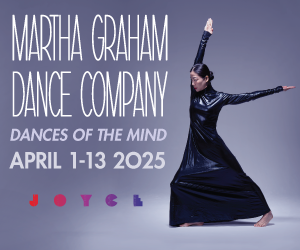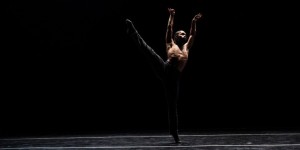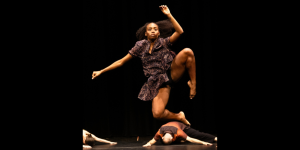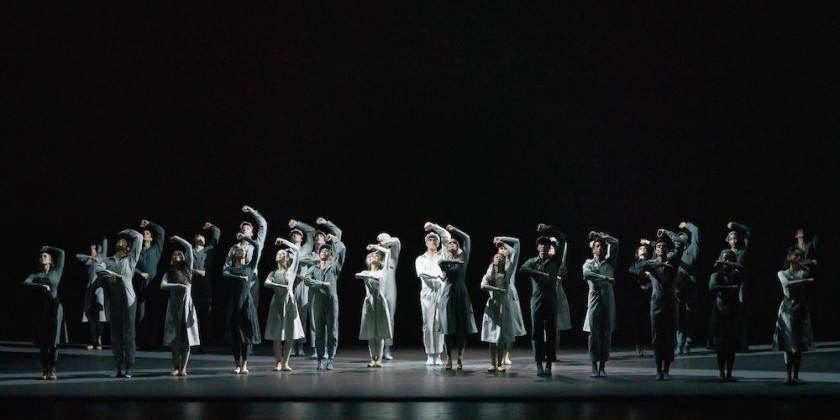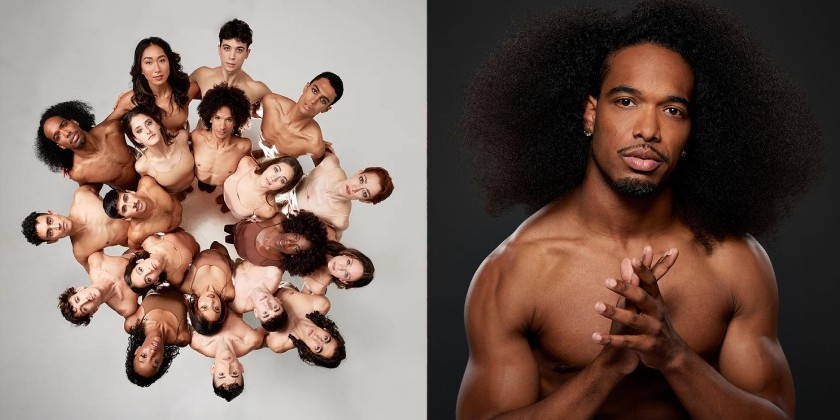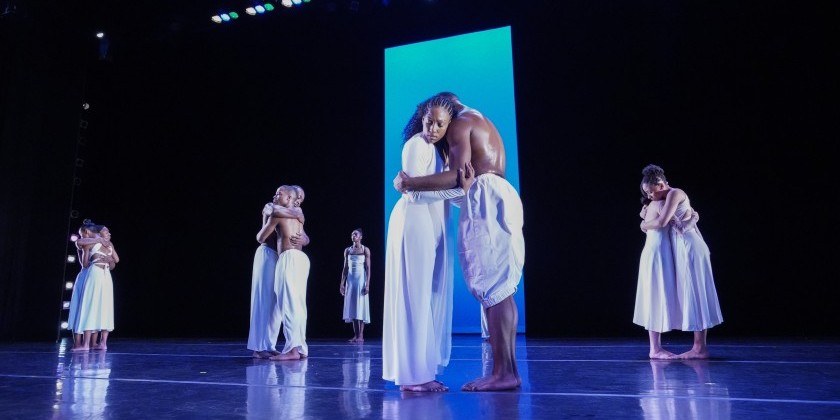IMPRESSIONS: Herman Cornejo's "Anima Animal" at The Joyce Theater
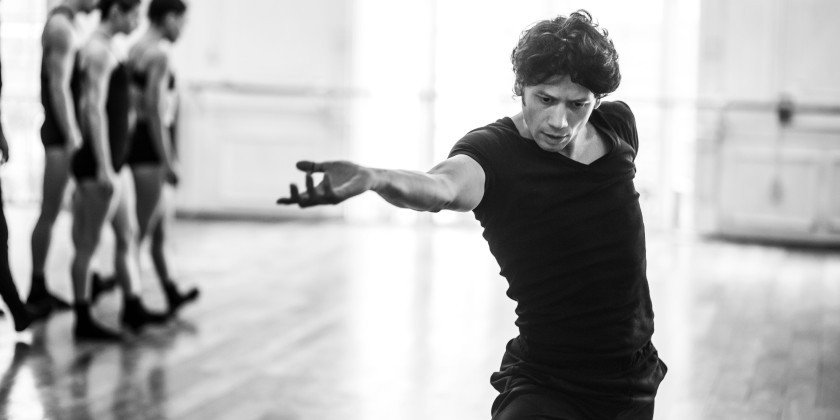
Artistic Director, Original Concept & Principal Dancer: Herman Cornejo
Artistic Director of Grupo Cadabra & Choreographer: Anabella Tuliano
Grupo Cadabra Dancers: Guido Bonacossa, Julio Bouhier, Diego Gomez, Laura Belen Mazzola, Ximena Tamara Pinto, Claudio Rabinovich, Sofīa Sciaratta, Samanta Vibart
Music: Luis Maurette “Uji” & Noelia Escalzo
Lighting Design: Clifton Taylor
Costume Design: Anabella Tuliano & Elsa Schenone
Renowned American Ballet Theatre Principal Dancer Herman Cornejo is one of the most celebrated artists of our time. In the Los Angeles Times in 2013, Susan Reiter wrote of the Argentina native: "Cornejo has elegantly and boldly left expectations behind. [His] phenomenal technique continues to amaze, but he always uses it to express the essence of each role."

This rings true in both Cornejo’s dancing and in his role as an artistic director. His first ever evening-length work, “Anima Animal,” soars on all accounts. In it, he honors his home country’s rich history and folklore, which simultaneously brings life to a choreographic vision that has been patiently stirring for over one hundred years.

In 1917, the legendary choreographer Vaslav Nijinsky was slated to complete what would have been his first “Argentine ballet” (originally titled “Caaporá”) while he was on tour in Buenos Aires, Argentina. Its narrative of loss and love would depict the Guarani indigenous legend of the Urutaú bird. However, due to illness, “Caaporá” did not come to fruition. Following his 2021 NYU Center for Ballet and the Arts Fellowship and inspired by Nijinsky’s original idea, Corenjo revives the Guarani narrative in his premiere “Anima Animal.”
Featuring additional choreography by Anabella Tuliano and an original score by DJ UJI, both movement and music convey a blend of traditional and contemporary forms. The cast displays a supple combination of ballet’s ethereal precision and contemporary dance’s organic humanity. Electronic noises overlay sounds of nature, and layer with piano, strings and pulsing rhythms, shaped by the composers’ travels across South America. Shared through an Argentine cultural lens, “Anima Animal” stands as an open invitation for us to reflect on humanity’s imperfections, and our constant striving to reach our highest potential.

Cornejo dances as a Principal Dancer in the work, playing the legend’s main character, a warrior named Guyra. He shares the stage with Tuliano’s Argentine dance company, Grupo Cadabara.
In a cosmic explosion, Earth is born. Nine humans composing two tribes strive to reach celestial elevation. Guyra, danced with bravado by Cornejo, navigates this desire for ultimate purification. He meets a woman of another tribe named Yvy (danced by Ximena Tamara Pinto), and they fall in love. After their passionate encounter, a flood devastates Earth, casting the tribes into conflict. Guyra ultimately attempts to harm a man of another tribe, and mistakenly maims his dear Yvy. Guyra transforms into a bird — the Urutaú — and “[soars] into the darkness toward a celestial eternity.”

Cornejo captivates, often dancing or walking apart from the ensemble. Even if an audience member had never witnessed Cornejo on stage before, he was not difficult to discern. Most of his movement entails slow walking patterns around the stage as the group dances around him, as if he is examining the world. Yet bursts of solo dancing — incredibly sustained jumps and dazzling, floating rotations — brings power and determination to his character.
His duet with Pinto expresses both fortitude and sensitivity. Rising on their toes, they fall into each other, cascading through seamless lifts, rotations and embraces. Their loving, passionate connection contrasts the solitude Cornejo embodies in the remainder of the work.

The connectedness of the group equally draws my attention. Their ability to create illustrations of birds, arrowheads and waves arrests. The eight dancers repeatedly connect like an amoeba, shifting and rotating. In each formation, they extend their arms like wings, subtly flexing their limbs as if ruffling where feathers might be.
One of the piece’s most satisfying moments occurs when the dancers represent the ocean. Lining up vertically, they undulate their arms, one at a time in quick succession. They paint the space with their wrists as their hands rise with a gentle, lulling quality. This undulation develops into a fuller-body experience involving the torso and neck, ultimately sending the dancers into rushing, deep lunges which propel them backwards. From here, they partner and dance with large, sweeping qualities. They become a tide, pushing and pulling across the stage as Cornejo observes.

“Anima Animal” leaves my heart racing, particularly after Cornejo’s final solo. In this moment, his character faces remorse for his actions and metamorphoses into a bird. His anguished gestures meld into a creature taking flight, offered a second chance. Facing the dawn of tomorrow in a final flash, strobe lights beckon Cornejo as he leaps towards us.




